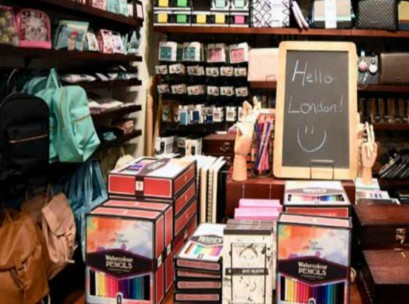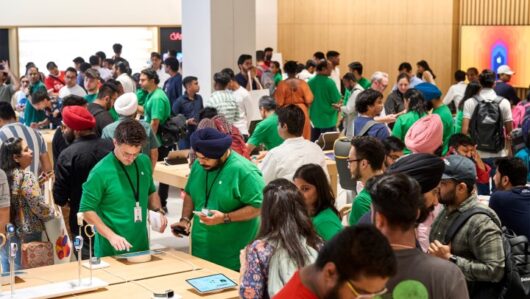 Economic uncertainty, increased risk and sluggish growth in global markets has made Australia a prime target for international retailers chasing growth.
Economic uncertainty, increased risk and sluggish growth in global markets has made Australia a prime target for international retailers chasing growth.
Australia’s distant geographic location, smaller population, more subdued albeit stable market compared to the promising frontier markets of Asia, dominant retail chains and higher operating cost structures saw few global retailers venture into this market until relatively recently.
Apart from franchise chains, a number of global retailers that were early entrants to the Australian market struggled or failed, including Toys ‘R’ Us, Daimaru, Dairy Farm’s Franklins supermarkets and Mothercare.
Australia is a mature retail market with a growing population, safety nets that underpin consumer spending, political stability and accessible market territories, courtesy of major shopping centre networks.
Arguably, there is also a complacency in Australian retailers which have long been able to mimic other successful companies without too much innovation or effort.
Those retailers are now feeling the heat from global entrants and seasoned retailers who can be more agile in site selection and store format options and have access to cheaper store development finance from overseas financiers and usually have more efficient supply chains.
While many of those complacent retailers are now battling to defend their market share and protect sales and earnings, there are a growing number of Australian retail chains who are changing the stay-at-home mindset and venturing overseas.
Expanding overseas is potentially rewarding, but not without risks as retailers such as Country Road and Peter Alexander found after they closed stores and exited the United States market. Meanwhile, Jay Jays quit South Africa and Woolworths abandoned an electronics retailing joint venture in India.
Cash Converters, Harvey Norman, Kathmandu, Billabong and Michael Hill are among other Australian retailers that have endured some difficult trading periods in global markets.
An eye for international expansion
However, there are also success stories, including Cotton On, Smiggle, Lovisa, Domino’s, Retail Food Group and Cartridge World, while Wesfarmers’ entry into the British hardware and home improvement market with the Homebase acquisition is expected to be a positive move.
Cotton On Group has emerged as one of the leading Australian retailers expanding overseas, competing in the challenging fashion industry with a multi brand strategy across the Cotton On, Cotton On Kids, Cotton On Body, Typo, Rubi Shoes, Supre and Factorie retail chains.
The privately-owned Cotton On Group has annual sales of around $2 billion and is building its offshore revenues in 17 countries, including the United States, South Africa, Brazil, Hong Kong and Malaysia.
Cotton On Group’s overseas store growth is built on an in-house design team and supply chain capability that focuses on casual competitively priced apparel, footwear and home products.
The company has a vertically-integrated business model and its supply chain capability is compared to fast fashion global retailers like Zara and H&M.
The turnaround from design to manufacture is between two and eight weeks and stores receive new ranges weekly from distribution centres in Australia, South Africa, China, Singapore, the USA and New Zealand.
Cotton On Group has more than 1,300 stores globally.
A win for Smiggle
Premier Retail is rapidly rolling out its Smiggle chain across Asia and into Europe, expanding to more than 300 stores and generating more than 60 per cent of its sales outside Australia.
Premier Retail has virtually been opening a store a week in the past 12 months and expects to have up to 330 Smiggle stores trading by Christmas this year.
Mark McInnes, Premier Retail CEO, expects the chain to reach $200 million in annual sales in the UK by calendar 2019 and to expand its footprint to 50 stores across Hong Kong and Malaysia within five years.
Another 15 to 20 stores are expected to open in Ireland following entry into that market this half and McInnes has indicated that the chain is examining other geographic opportunities.
The success of Smiggle is based on a fun, quirky, fashion-forward stationery concept, a sophisticated supply chain and small footprint stores.
Smiggle is a corporate chain controlling its own destiny rather than a franchise or joint venture and Premier Retail has moved to roll its stores quickly after initially testing each marker, recognising that scale is important to developing brand recognition, optimising infrastructure and store support and achieving an early break even point.
Premier Retail is expected to report significant full year sales growth for the 2017 financial year, after lifting global revenues by 26.4 percent in the first half.
McInnes claims sales and customer acceptance of Smiggle in each of the countries entered has been exceptional and the chain has become a truly unique global brand boosted by store openings and an online platform.
Shine bright like a diamond
Lovisa was only established in April 2010 but was created from the outset as an international specialist fast fashion jewellery retailer.
Lovisa has more than 240 company-owned stores across Australia, New Zealand, Singapore, Malaysia, South Africa and UK and franchised stores in the Middle East and Vietnam.
The chain has developed a vertically-integrated business model, developing and commissioning its own designs under Lovisa branding.
Backed in its development stages by BB Retail Capital, Lovisa is now ASX-listed and has built its store network to around 300 stores generating sales for the 2017 financial year of $178.7 million.
Lovisa lifted its net earnings by 75.5 percent on a 16.5 per cent lift in sales. The chain posted like-for-like sales growth of 10 per cent, driven by a pipeline of up to 190 new products into store each week.
Lovisa has a global property team in place promoting the retail brand to landlords across Asia and Europe, while assessing markets and store locations rigorously to ensure they meet selection criteria, including what the company calls rent economics.
The chain expects to add between 20 and 30 stores this year, attributing its success in markets outside Australia to its vertically integrated structure, offering customers on-trend ranges at low costs, but providing high margins for the retailer.
Lovisa has a scalable rollout model based on small store footprint and fitout that allows an average store payback in less than 12 months, with stores supported by a centralised merchandising, marketing and back office support structure.
A slice of of success
Several food retailers have also had considerable success expanding globally, with Retail Food Group signing up licensed partners in 80 territories worldwide and Domino’s Pizza Enterprises expanding into Germany, France and Japan.
Retail Food Group has more than 2,500 stores across 10 brands trading internationally and has recently ventured into Scandinavia with Donut King and India with Pizza Capers.
Listed on the ASX and headquartered in Brisbane, Retail Food Group’s brands are located in countries such as the US, the UK, China, Mexico, South Korea, Turkey, Malaysia, Pakistan and the United Arab Emirates.
While Bunnings’ Homebase acquisition in the United Kingdom has run into headwinds with transition costs and a slowing British economy after the Brexit vote, Wesfarmers remains confident that its hardware and home improvement warehouse stores will succeed.
Bunnings’ UK operations generates annual sales of $2.07 billion in FY17, but posted an $89 million loss before interest and tax that included $33 million in restructuring costs following the acquisition of the Homebase chain in February 2016.
Wesfarmers has been encouraged by the performance of four warehouse trial stores opened in the UK that will test concepts planned to roll out across the 255 store network.
Fifteen to 20 pilot stores are expected to be either trading or nearing completion the end of this year and Wesfarmers expecting long-term success with its offshore venture predicated on the broad roll-out of the Bunnings format.





